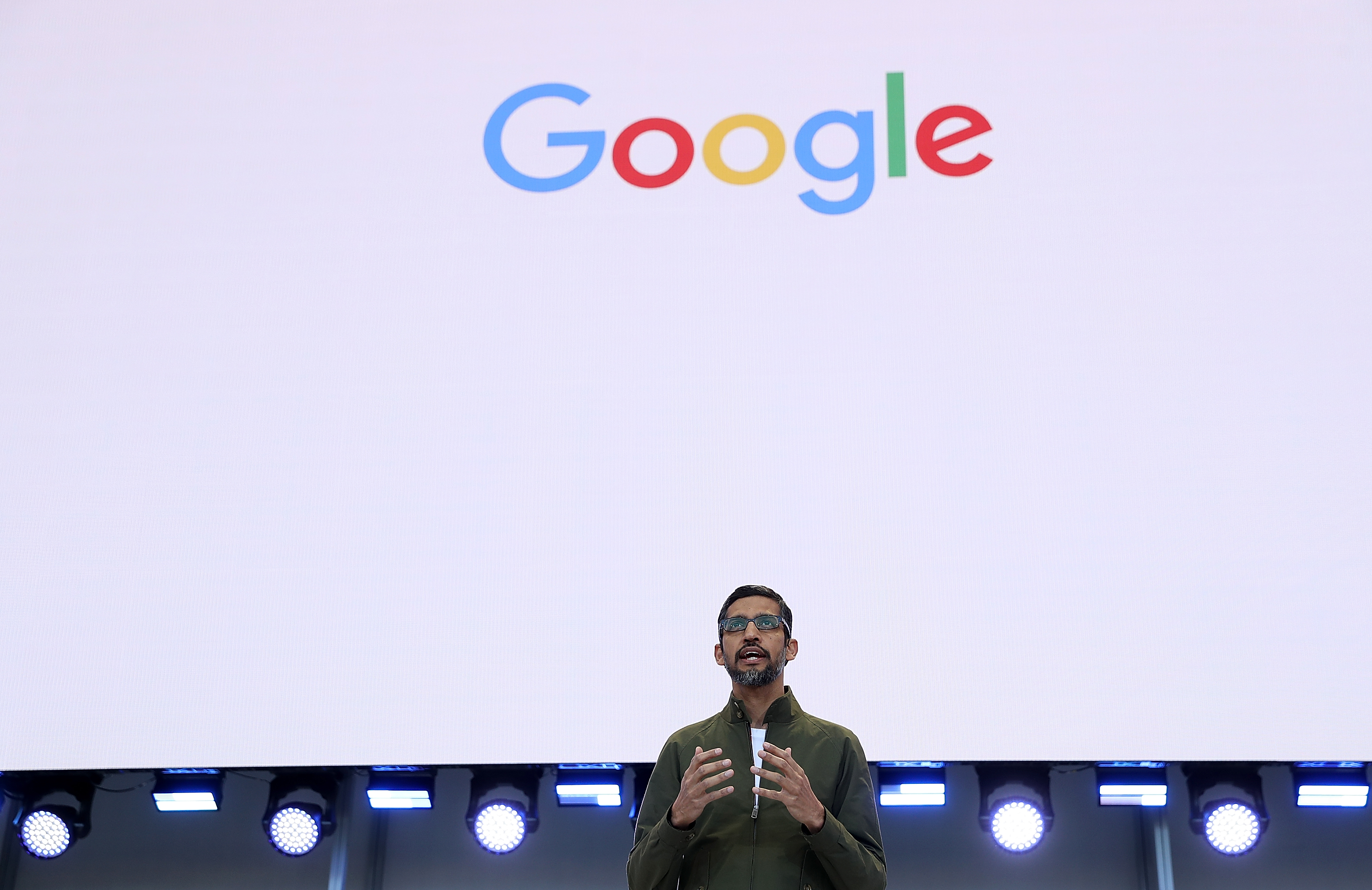Google’s new tools will make your life more convenient—for a price

Google on Monday showed off a slew of new features coming to its wide range of consumer products, from an addition to its Android OS that encourage users to take breaks to a feature in its Google Assistant that praises kids (and, perhaps, adults) for using the word “please.”
Speaking to a crowd of developers, reporters, and techies during its annual I/O conference in Mountain View, California, Google CEO Sundar Pichai noted that these additions make technology increasingly helpful and accessible. Of course, the company hopes the extra convenience will make users more willing to share all kinds of personal data when they’re, say, asking Google to please tell a story.
But he also was quick to point out that the tech giant—which has dominated the markets for search, browsers, e-mail, and more for over a decade now—is trying to let users feel more mindful about how these products are integrated into daily habits. (This, perhaps, is a reaction to growing pressure from critics like former Google design ethicist turned ethical-tech advocate Tristan Harris, who has criticized technology leaders like Facebook and Google for the addictive nature of their products.)
Indeed, while technology can be a positive force, Pichai said, “there are very real and important questions being raised about the impact of these advances and the role they’ll play in our lives.”
With that in mind, here are some of Google’s most intriguing announcements, in increasing order of the convenience they offer:
Feature: Pretty Please
Product: Google Assistant
What it is: To assuage parent concerns that kids may be getting bossy and demanding by commanding Google Assistant to wake up with the phrase “Hey Google,” Google Assistant will have the ability to respond to queries that include the word “please” with phrases like “Thanks for asking so nicely” and “Thanks for saying please.” This push for politeness follows last month’s news that Amazon’s Alexa voice assistant will soon be able to encourage children to say a “magic word” to get their way.
Availability: Later this year
Feature: Do Not Disturb
Product: Android P (which is now available in beta for a few flagship Android handsets, such as Google’s Pixel phones, but should roll out more widely in the fall)
What it is: An update to Android’s do-not-disturb mode will let you place your phone face-down on a table to send it to silent mode. And it will go beyond hushing calls and texts by keeping the screen dark, too. (You’ll still be able to allow calls from certain people, if you want them.)
Availability: Now, for beta users. Otherwise, whenever Android P is released.
Feature: Dashboard
Product: Android P (which is now available in beta for a few flagship Android handsets, such as Google’s Pixel phones, but should roll out more widely in the fall)
What it is: Dashboard will show users more specific data about how they use their phones, including details like how many times you unlock your phone each day and how much time you spend using specific apps (a demo showed the ability to see, within Gmail, an hour-by-hour breakdown of how much the app was being used). There will also be a timer to let you set limits on how long you can use specific apps before your phone will tell you to take a break.
Availability: Now, for beta users. Otherwise, whenever Android P is released.
Feature: Style Match
Product: Google Lens
What it is: Google Lens will be added to the camera app on some Android smartphones, and with that will come some major new features. One of them, Style Match, acts like Shazam for outfits and home decor by letting you point the phone's camera at, for instance, a lamp or a dress and get reviews or information about where you can find similar items.
Availability: In the coming weeks.
Feature: Smart Compose
Product: Gmail
What it is: Uses machine learning to suggest phrases as you type, as long as you keep hitting the tab button on your keyboard. For instance, if you type in “Taco Tuesday” as your subject line, Gmail will help type in things like guacamole and the address of your favorite taqueria. Helpful, yes, but also a reminder that Google knows a heck of a lot about you, including what you might say in any given situation.
Availability: May
Feature: Google Duplex
Product: Google Assistant
What it is: Still in the experimental stage, Google Duplex is an impressive human-sounding AI agent that can make phone calls to set up appointments for you. Take a listen to a sample call, where Google used Duplex to call a restaurant and seamlessly navigate a tricky situation—trying to make a reservation for four people, and finding that no reservation was needed for a party of less than six—in a voice that sounds totally human.
Availability: To be determined, though Google says it will start testing it out in Google Assistant this summer for making restaurant reservations or hair salon appointments, and for figuring out stores’ holiday hours.
Keep Reading
Most Popular
Large language models can do jaw-dropping things. But nobody knows exactly why.
And that's a problem. Figuring it out is one of the biggest scientific puzzles of our time and a crucial step towards controlling more powerful future models.
The problem with plug-in hybrids? Their drivers.
Plug-in hybrids are often sold as a transition to EVs, but new data from Europe shows we’re still underestimating the emissions they produce.
Google DeepMind’s new generative model makes Super Mario–like games from scratch
Genie learns how to control games by watching hours and hours of video. It could help train next-gen robots too.
How scientists traced a mysterious covid case back to six toilets
When wastewater surveillance turns into a hunt for a single infected individual, the ethics get tricky.
Stay connected
Get the latest updates from
MIT Technology Review
Discover special offers, top stories, upcoming events, and more.